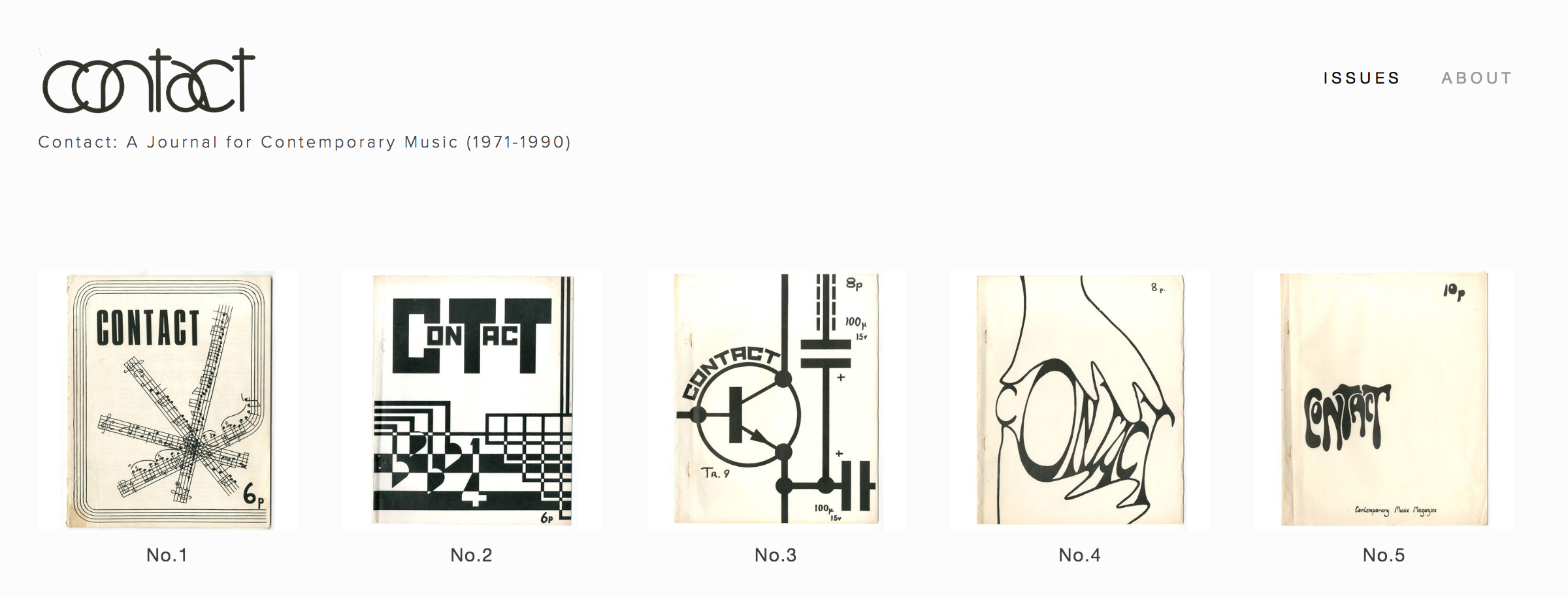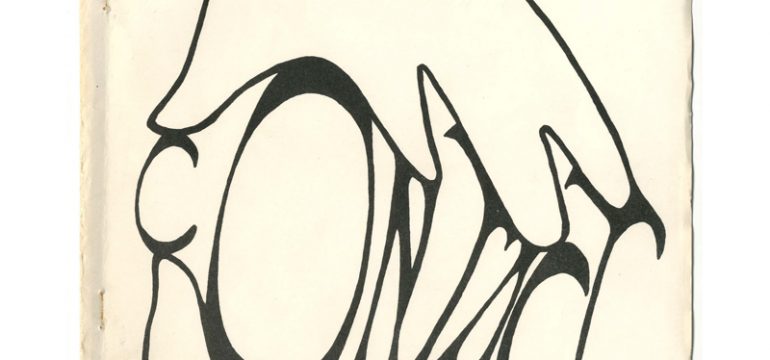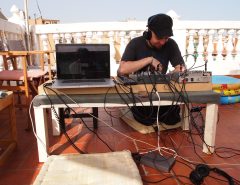
Contact: A Journal for Contemporary Music (1971-1990)
Contact’s basic intentions – as set out fully in the first issue, dated Spring 1971 – were to promote informed discussion of 20th-century music in general and the music of our own time in particular. Among the original concerns of the founders of the magazine – Chris Villars, a philosophy student, and myself, at the time a second-year music undergraduate (both at the University of Birmingham) – were that popular musics, jazz and contemporary folk music should play a part in our scheme. In the earlier days, especially, we continually sought for good writing in these fields, as well as contributions on ‘serious’ music; as Chris and I wrote in the editorial to the first issue:
“Our hope was that we would do a little towards bringing these different fields together and some of the people involved in them, in addition to ‘making contact’ with those unacquainted with, or unsympathetic towards, modern music in general – and, especially, many contemporary styles of ‘serious’ music.”
As the journal developed, we were able to find writers to cover a wide range of ‘contemporary musics’: fields as different (many would say antithetical) as the territories often labelled Experimental Music and The New Complexity, for instance; and free improvisation and electronic music of various kinds as well as more conventionally-notated composition. The original aims of such greater inclusivity as that suggested by that first editorial remained, at best, elusive; at worst, arguably merely naïve. On the other hand, our desire for independence (from such musical-establishment bastions as the music publishers, for instance, as well as aesthetically and stylistically) and our pioneering intentions (put simply, to publish writing about music that very few others were making available at the time) seem to have been appreciated. Not, it’s true, sufficiently appreciated to guarantee Contact’s existence into a third decade. But then, in the world of ‘little magazines’ from which our publication sprang, two decades is actually a pretty remarkable length of time.
Keith Potter (one of the founding Editors, and Chief Editor from 1971 to 1988)





Leave a Reply
Lo siento, debes estar conectado para publicar un comentario.